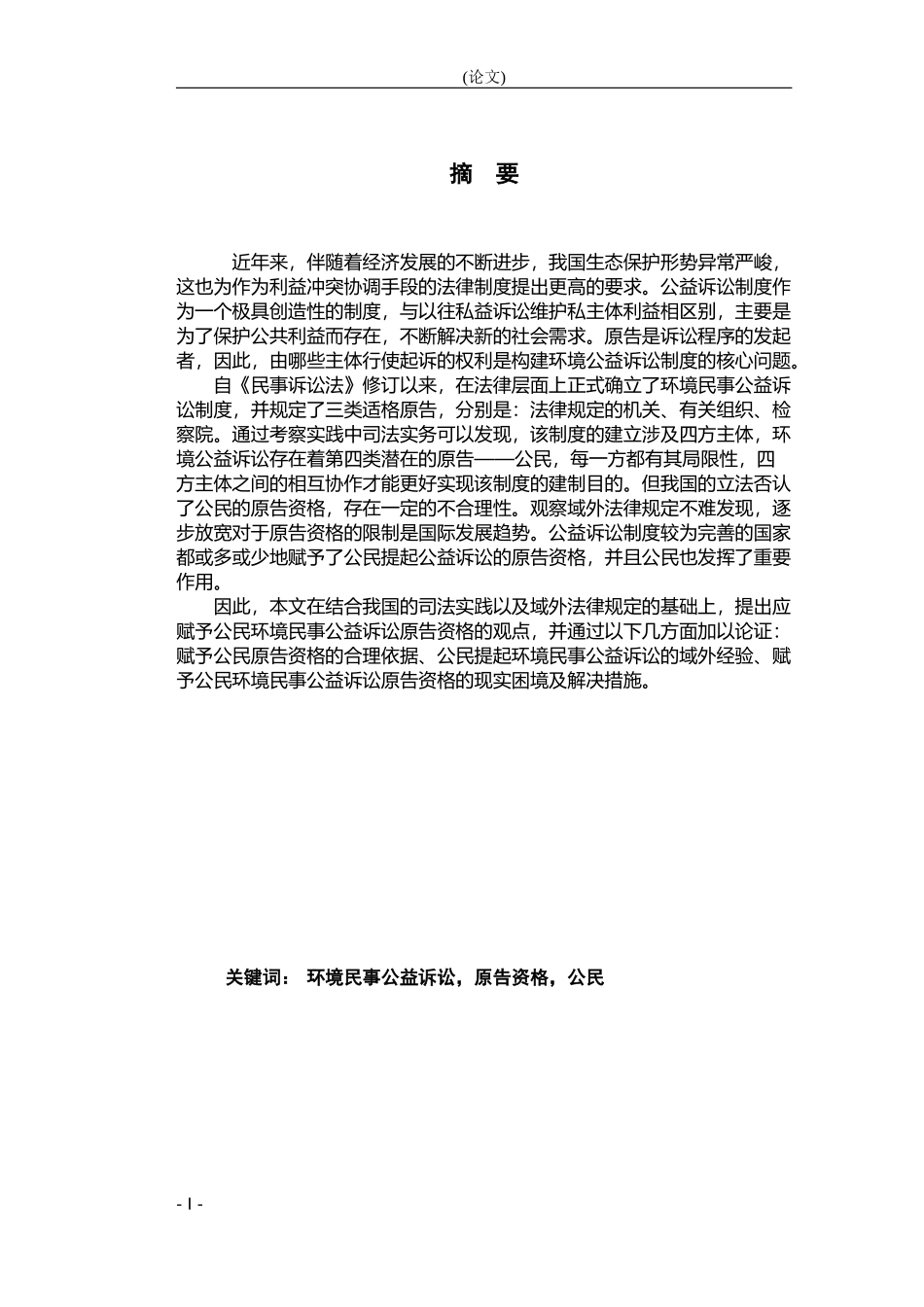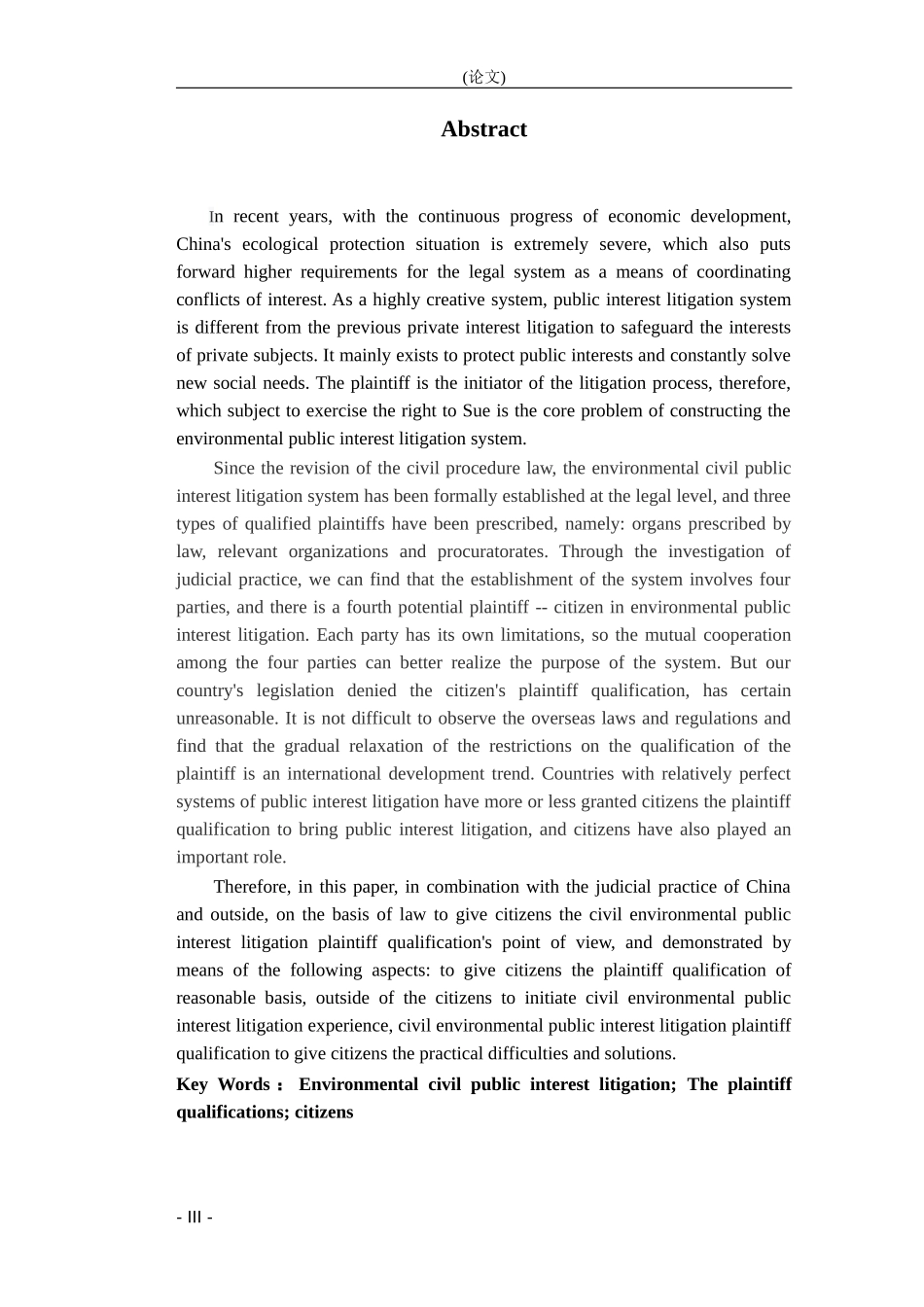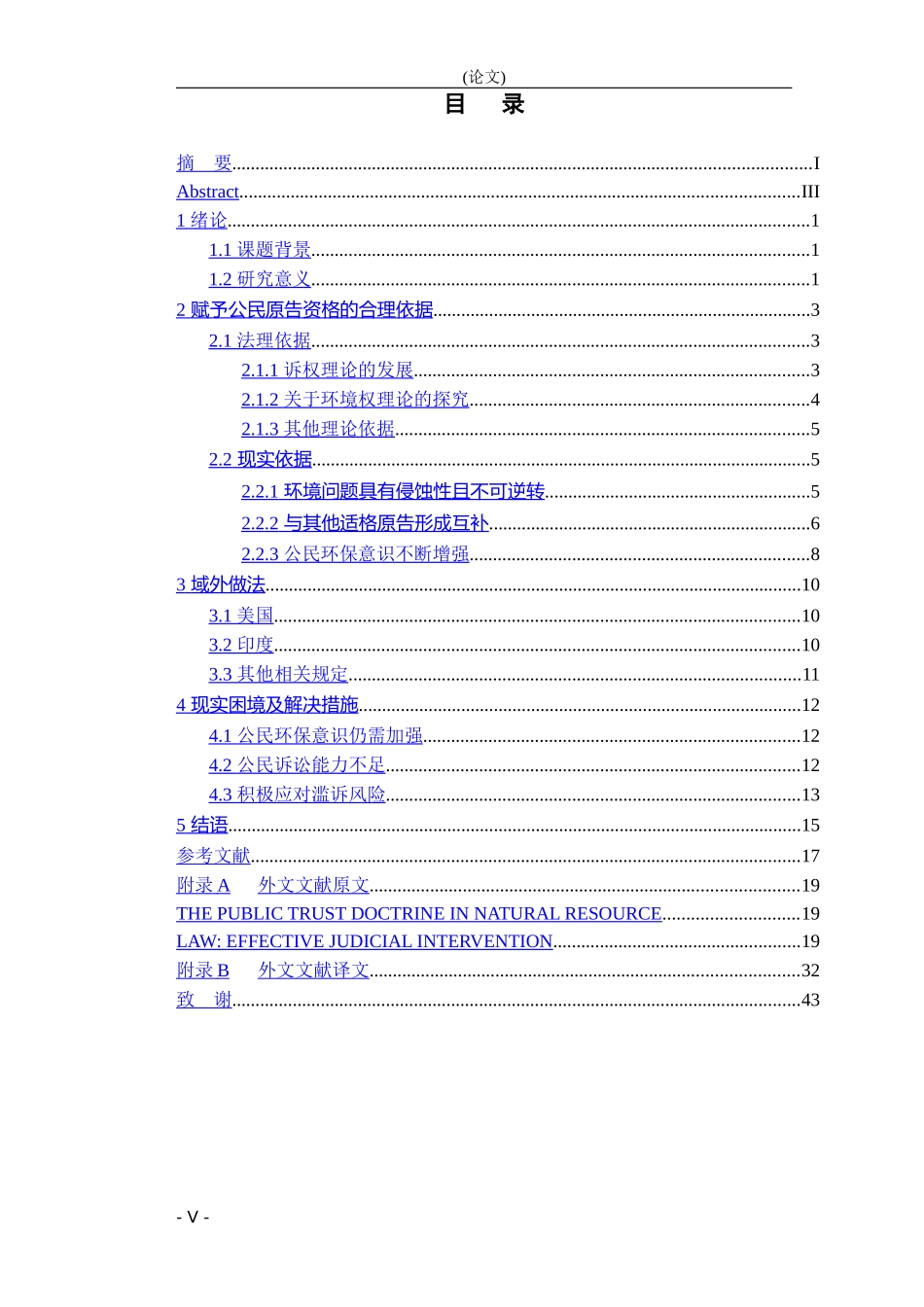(论文)摘 要近年来,伴随着经济发展的不断进步,我国生态保护形势异常严峻,这也为作为利益冲突协调手段的法律制度提出更高的要求。公益诉讼制度作为一个极具创造性的制度,与以往私益诉讼维护私主体利益相区别,主要是为了保护公共利益而存在,不断解决新的社会需求。原告是诉讼程序的发起者,因此,由哪些主体行使起诉的权利是构建环境公益诉讼制度的核心问题。自《民事诉讼法》修订以来,在法律层面上正式确立了环境民事公益诉讼制度,并规定了三类适格原告,分别是:法律规定的机关、有关组织、检察院。通过考察实践中司法实务可以发现,该制度的建立涉及四方主体,环境公益诉讼存在着第四类潜在的原告——公民,每一方都有其局限性,四方主体之间的相互协作才能更好实现该制度的建制目的。但我国的立法否认了公民的原告资格,存在一定的不合理性。观察域外法律规定不难发现,逐步放宽对于原告资格的限制是国际发展趋势。公益诉讼制度较为完善的国家都或多或少地赋予了公民提起公益诉讼的原告资格,并且公民也发挥了重要作用。因此,本文在结合我国的司法实践以及域外法律规定的基础上,提出应赋予公民环境民事公益诉讼原告资格的观点,并通过以下几方面加以论证:赋予公民原告资格的合理依据、公民提起环境民事公益诉讼的域外经验、赋予公民环境民事公益诉讼原告资格的现实困境及解决措施。关键词: 环境民事公益诉讼,原告资格,公民- I -(论文)AbstractIn recent years, with the continuous progress of economic development, China's ecological protection situation is extremely severe, which also puts forward higher requirements for the legal system as a means of coordinating conflicts of interest. As a highly creative system, public interest litigation system is different from the previous private interest litigation to safeguard the interests of private subjects. It mainly exists to protect public interests and constantly solve new social needs. The plaintiff is the initiator of the litigation process, therefore, which subject to exercise the right to Sue is the core problem of constructing the environmental public interest litigation system.Since the revision...












